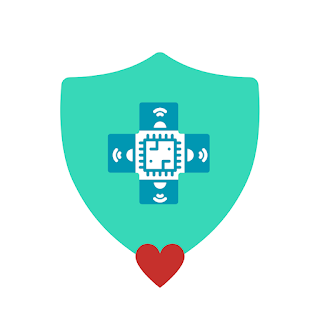Enhancing Health and Beyond: The Rise of Biosensors and Trackers
In the ever-evolving landscape of health and technology, biosensors and trackers are making their mark, revolutionizing the way we monitor and understand our bodies. These ingenious devices offer a glimpse into out physiological processes, empowering individuals to take proactive steps towards better health and well-being.
What are Biosensors?
Biosensors are compact analytical devices that integrate a biological sensing element with a transducer to detect and transmit information about specific biological markers. These markets could range from glucose levels in diabetics to heart rate variability in athletes. The key to their effectiveness lies in their ability to provide real-time data in a non-invasive or minimal invasive manner.
- Biological Recognition Element: This element interacts specifically with the target analyte, initiating a response that can be measured.
- Transducer: Converts the biological response into quantifiable signal, such as electrical optical or acoustic.
- Signal Processing System: Amplifies, filters, and analyzes the signal to provide meaningful information to the user.
Applications in Health and Medicine:
- Continuous Glucose Monitoring (GCM): CGM systems have revolutionized diabetes management by providing individuals with real-time glucose readings, enabling them to make informed decisions about insulin dosing and dietary choice.
- Fitness and Performance Tracking: Wearable biosensors can monitor vital signs such as heart rate, oxygen saturation, and calorie expenditure, aiding athletes and fitness enthusiasts in optimizing their training routines and preventing overexertion.
- Remote Patient Monitoring: Biosensors equipped with wireless connectivity allow healthcare providers to remotely monitor patients' vital signs and health parameters, facilitating early intervention and preventing overexertion.
- Enviromental Monitoring: Biosensors are deployed in environmental monitoring systems to detect pollutants, toxins, and pathogens in air, water, and soil, safeguarding public health and the ecosystem.
Advancements in Tracker Technology:
In parallel with biosensors, trackers have emerged as indispensable tools for health and lifestyle management. These devices collect and analyze data from various sources, providing users with actionable insights into their habits and behaviors.
- Activity Trackers: These devices monitor physical activity levels, including steps taken distance traveled, and calories burned, motivating users to maintain an active lifestyle.
- Sleep Trackers: By monitoring sleep duration and quality, these trackers help users identify patterns and factors affecting their sleep, facilitating improvements in sleep hygiene and overall well-being.
- Nutrition Trackers: Nutrition trackers log dietary intake, allowing users to track calorie consumption, macronutrient balance, and nutritional deficiencies, promoting healthier eating habits.
- Mood Trackers: Mood tracking apps enable users to record their emotions and mental states, facilitating self-awareness and the identification of triggers for stress, anxiety, or depression.
The Future Outlook:
As technology continues to advance, the future of biosensors and trackers holds immense promise. Innovations such as flexible and wearable electronics, miniaturization of sensors, and artificial intelligence-driven data analysis will further enhance the capabilities and accessibility of these devices.
Moreover, the integration of biosensors and trackers into comprehensive health ecosystems, encompassing telemedicine, electronic health records, and personalized medicine, will usher in an era of proactive and personalized healthcare.
However, along with these advancements come challenges related to data privacy, accuracy, and regulatory compliance. Addressing these challenges will be crucial in harnessing the full potential of biosensors and trackers while ensuring ethical and responsible use.
In conclusion, biosensors and trackers represent a paradigm shift in healthcare and personal well-being, empowering individuals to monitor, manage, and optimize their health in ways never before possible. As these technologies continue to evolve, they hold the promise of a healthier, more connected future for individuals and communities worldwide.



Comments
Post a Comment